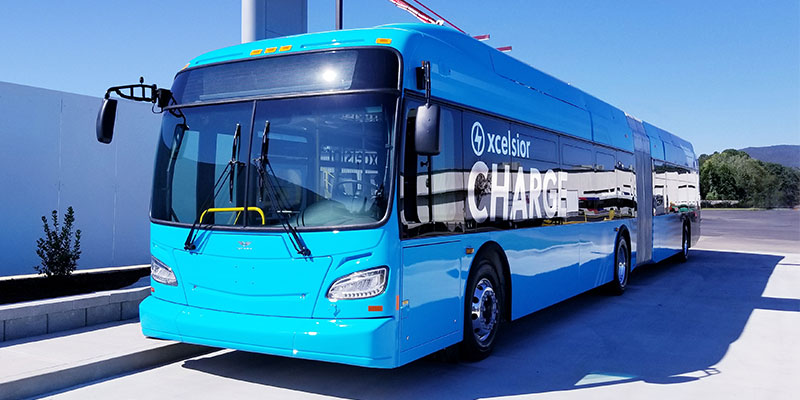Electric Buses? Get Onboard.

They’ll build you a bus with whatever drive chain you can name. Having said that, they’re clearly partial of electric. Check this good news out.

They’ll build you a bus with whatever drive chain you can name. Having said that, they’re clearly partial of electric. Check this good news out.
That seems amazing. I wonder how much an electric bus would cost. Probably just a bit more expensive than a normal one.
Craig,
At last something we can all agree about:) !
Electric buses are really great, and it’s very unfortunate local authorities and governments haven’t done more globally to promote the adoption of EV buses.
Electrically powered buses are not a new technology. The first electric bus was really a tram or street car as it ran on rails due to the poor state of the local streets. In 1835,Thomas Davenport an American blacksmith invented an early DC motor and built the first practical electric vehicle, to carry passengers on the main street of his home town of Brandon, Vermount.
By 1915 the Edison company had several fleets of electric buses some operating from inboard batteries, other from overhead wires.
Auckland, New Zealand operated one of the world’s largest electric trolley bus systems up to the 1970’s when a short sighted government scrapped the entire system replacing the network with freeways and diesel buses, to the detriment of commuters and the cityscape.
Most cities of the world are attempting to reintroduce some form Electric transit transport to replace what, only a few decades ago, they so rashly abandoned.
By far the most enthusiastic adoption of Electric buses is the Peoples Republic of China where nearly 500,000 are in service. (this is about 99% of the world’s EV buses).
Because buses travel on set routes and at set speeds with many stops, they are ideal vehicles for electric power drives. Electric buses are quieter, with more room and of course far less pollution.
Naturally,EV buses are more expensive, but not economically prohibitive. Prices for a full size bus range from $300,000 to $600,000, roughly double that of diesel.
In Australia, I have built several dozen small electric buses, while in the UK I acquired a remarkably intact “barnfind” 1908 model ‘Double Decker’ electric bus built for the ill-fated London Electrobus Company.
It’s with a deep sense and of anger and frustration, I witness China dominating EV bus manufacture ! The most prominent PRC company, BYD, dominating the market (78%)
For 20 years, in both the UK and Australia, I’ve tried to interest governments and local authorities in placing orders large enough to save local Coach builders and bus manufacturers from bankruptcy by producing EV buses.
To my frustration, governments of all persuasions (including greens) have never backed these proposals, despite receiving no request for capital or subsidies. All we needed was orders to replace existing diesel vehicle fleets in sufficient numbers to provide economic scale.
In the end, governments will be forced to buy electric fleets, but by then China will dominate a “globalized” market.
It’s most heartbreaking to witness the shortsightedness of our craven, short sighted politicians as they allow local skills and employment become casualties of unfair global competition!
As one lifelong Union official and greens supporter confided, “I’d never thought I’d say this, but I wish we had a President Trump!”.